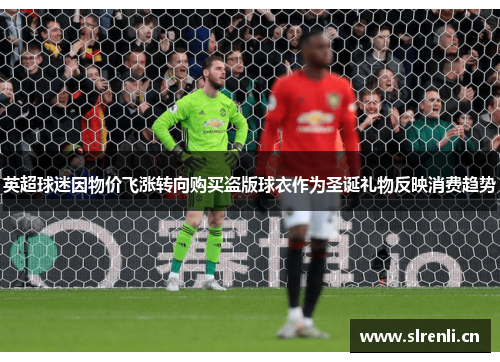英超球迷因物价飞涨转向购买盗版球衣作为圣诞礼物反映消费趋势
An article about the trend of English Premier League fans turning to buying counterfeit jerseys as Christmas gifts due to soaring prices can be structured as follows:
1、Consumer Behavior Shift: Rising Prices and Counterfeit Jerseys
With the increasing cost of authentic merchandise, English Premier League fans are opting for counterfeit jerseys as affordable Christmas gifts. This shift reflects changing consumer priorities and economic pressures. Many supporters find themselves priced out of official merchandise, leading to a surge in demand for cheaper alternatives.
As prices for licensed jerseys continue to escalate, traditional gift-giving habits among football enthusiasts are being reshaped. The allure of branded apparel persists, but affordability concerns are compelling fans to explore unauthorized replicas, which offer a compromise between cost and fandom.
The proliferation of counterfeit goods has sparked debates about ethical consumption and intellectual property rights within football culture. Despite legal and ethical considerations, the affordability of knockoff jerseys presents an attractive proposition for consumers navigating economic uncertainties.
2、Impact on Retail Dynamics: Shifting Sales Patterns
The trend towards counterfeit jerseys is not just altering consumer behavior but also disrupting traditional retail dynamics. Retailers are observing a decline in sales of official merchandise as consumers increasingly favor cheaper alternatives. This shift challenges the sustainability of current pricing strategies within the football merchandise market.
As consumers prioritize affordability over authenticity, retailers are compelled to reconsider their pricing models and product offerings. The rise of counterfeit jerseys as Christmas gifts reflects broader economic trends influencing purchasing decisions among football fans.
This shift has prompted stakeholders across the industry to rethink strategies for engaging with price-sensitive consumers while maintaining brand integrity. The impact of this trend extends beyond immediate sales figures to long-term implications for brand loyalty and market segmentation.
3、Ethical Considerations: Debates and Dilemmas
The surge in counterfeit jersey purchases raises ethical considerations within the football community and beyond. Supporters must navigate conflicting interests between affordability and respecting intellectual property rights. The proliferation of counterfeit goods challenges the integrity of licensed merchandise and its role in sustaining football clubs financially.
Debates surrounding ethical consumption are heightened as fans weigh personal affordability against broader implications for the football industry. The allure of branded merchandise persists, but the accessibility of counterfeit jerseys complicates efforts to uphold intellectual property rights and fair trade practices.
These ethical dilemmas underscore the complex interplay between consumer behavior, economic pressures, and corporate responsibility within the football merchandise market.
4、Long-term Implications: Future Trends and Market Responses
The trend of purchasing counterfeit jerseys as Christmas gifts reflects broader economic trends reshaping consumer behavior within the football merchandise market. As fans increasingly prioritize affordability, retailers and brands must innovate to address shifting consumer preferences.

The rise of counterfeit jerseys underscores the need for sustainable pricing strategies and enhanced consumer engagement tactics within the football industry. Brands that successfully navigate these challenges can foster loyalty among price-sensitive consumers while upholding the integrity of licensed merchandise.
tqb谈球吧Looking ahead, the football merchandise market is poised to evolve as stakeholders adapt to changing consumer expectations and economic realities. The impact of counterfeit jersey purchases as Christmas gifts highlights the resilience and adaptability of the industry in responding to shifting consumer demands.
总结:
The trend of English Premier League fans turning to counterfeit jerseys as Christmas gifts due to rising prices reflects a significant shift in consumer behavior. This phenomenon challenges traditional retail dynamics, raises ethical dilemmas, and prompts industry stakeholders to rethink strategies for engaging with price-sensitive consumers. As the market evolves, addressing these challenges will be crucial for maintaining brand integrity and meeting consumer expectations.
